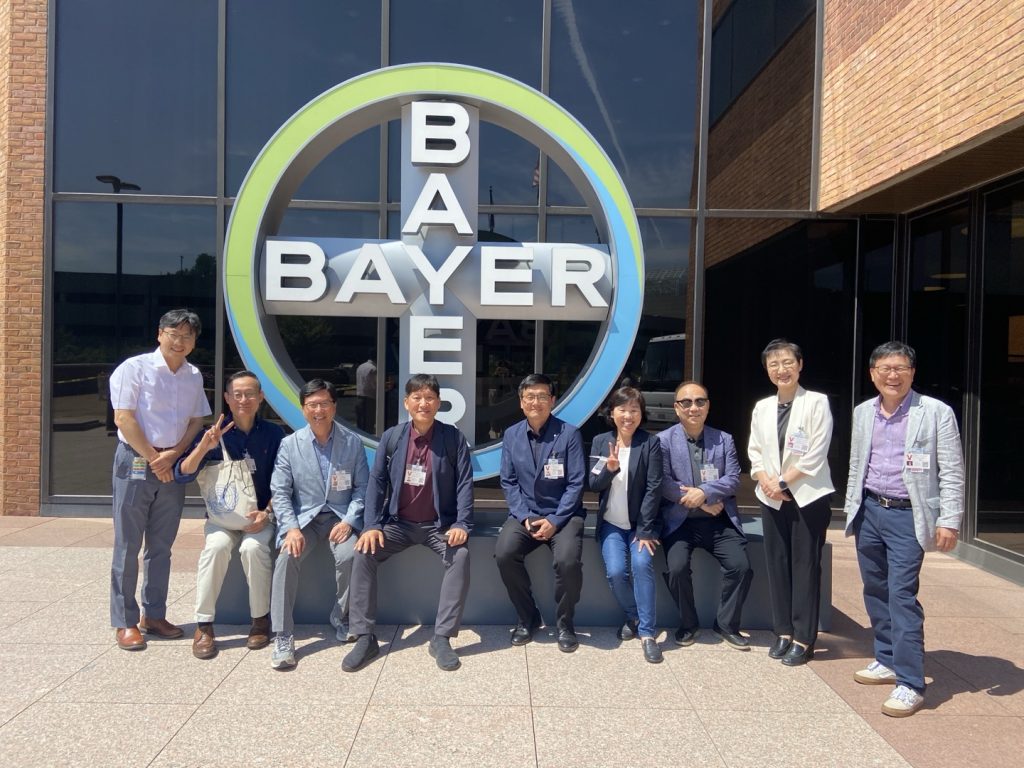Last week, the U.S. Grains Council (USGC) sponsored a biotechnology legislation advisory team of South Korean scientists and governmental committee members to meet with U.S. regulators and leading biotechnology companies to learn about the development trends and quality-control systems of the U.S. genome editing technology.
“This program focused on technological development trends and regulatory systems for new breeding technologies, including gene editing, as part of the Council’s efforts to educate policymakers about deregulation of gene editing technology in South Korea and to help establish a rational and scientific review process for genetically edited products,” said Haksoo Kim, USGC director in South Korea.
Attendees touched down in Washington, D.C. to start the program with a meeting with Pairwise, a gene editing company that has multiple crop varieties being grown by U.S. farmers today.
Afterward, the group visited the U.S. Department of Agriculture’s (USDA’s) headquarters to meet with staff from the USDA’s Animal and Plant Health Inspection Service (APHIS), the Environmental Protection Agency (EPA) and the Food and Drug Administration (FDA). The discussion focused on the science-based regulatory framework that allows startup companies to easily participate in technology development, and shared recent technological development trends and the benefits of gene editing technology development for humanity.
The team then traveled to Des Moines, IA, to learn about the practical development of genome editing technologies from Corteva, a biotechnology company and USGC member.
Iowa Corn Growers’ Association Director Dan Keitzer also welcomed the Council’s group at his farm, where he raises corn, soybeans and hogs with his son. Keitzer introduced the sustainable farming practices he uses, including no-till farming, and showed how biotechnology can bring value and benefit to crop production and the future of agriculture.
The program concluded in St. Louis, MO, where participants visited a research campus of Bayer, a biotechnology company and USGC member, to discuss the need for streamlining the biotech review system in South Korea and trends in genome editing technology. They then met with scientists from Benson Hill, a soybean and pea breeding and genome editing startup, to better understand business growth models for small and medium-sized startups.
“Learning about the regulatory framework and technological advancements for genome-editing technologies in the United States and seeing farmers’ awareness of the safety of biotechnologies and their sustainability efforts on the ground will be a great help to policymakers and stakeholders in Korea in understanding how biotechnologies are solutions that can provide abundant food for humanity in the era of growing climate change,” Kim said.
“The Council will continue to work to improve global buyer awareness and to encourage importing countries to adopt science-based, rational regulatory systems to ensure that biotechnology does not become a barrier to expanding U.S. agricultural exports.”
Learn more about the Council’s work in South Korea here.
About The U.S. Grains Council
The U.S. Grains Council develops export markets for U.S. barley, corn, sorghum and related products including distiller’s dried grains with solubles (DDGS) and ethanol. With full-time presence in 28 locations, the Council operates programs in more than 50 countries and the European Union. The Council believes exports are vital to global economic development and to U.S. agriculture’s profitability. Detailed information about the Council and its programs is online at www.grains.org.

